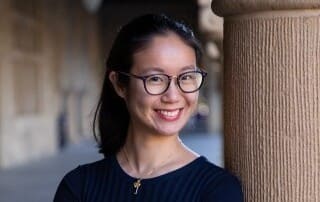Interview 212: How Polygence matches students with research projects in their areas of interest, an interview with co-founder, Jim Chow

The player may not work on Safari
- Jin Chow is not only the founder of Polygence but she is a recipient of the Forbes award for 30 under 30 movers and shakers in education.
- Jin gives her backstory, and she shares why she started Polygence
- Jin explains what Polygence does
- Jin explains the growth of Polygence
- Jin explains what launch pad is
- Jin shares where most of their students come from
- Jin explains to us what pods are
- Jin explains what their cost structure is for all three levels that they offer
- Jin talks about the industry experts and academics that work with the students
- Jin walks us through what happens in a session with a mentee and a mentor
- Jin shares the range of areas where they have academics and industry experts to work with students
- Jin tells us how long the research papers that students write?
- Jin explains how Polygence benefits the students that participate and complete a project
- Jin explains the meaning of the word Polygence
- Jin talks about when students do their Polygence projects
- Jin answers the question, “Isn’t, Polygence just furthering the gap between well-resourced and under-resourced families
- Jin makes some excellent points about invisible privilege, and shechallenges the conventional notion of “pay to play”
- Jin talks about the partial and full scholarships that they give out
- Jin talks about the objection, what would you say to the person who says most of the mentors are not industry experts but grad students?
- Jin talks about the challenge that most places where students get published that is meaningful takes longer than a few months, so isn’t the promise of possibly getting published an overpromise
- Jin talks about when they reject families who apply for Polygence
- Jin talks about the sign-up process and the Polygence application process
- Jin explains why they do not allow parents to join their sessions
- Jin answers the objection, aren’t your statistics about college admissions inflated because you attract a pool of very strong applicants, so you have selection bias built into your applicant pool
- Jin answers the objection, what would you say to the person who says, kids are already stressed out, aren’t you already adding more stress to students’ lives
- Jin talks about how Polygence is more than a place for students to crank out papers where they get published
- I share in depth, my own evolution from being Polygence skeptical to embracing and supporting Polygence for the student who really wants to do a research project
- Jin explains when Polygence works best
- Jin goes on the hotseat





